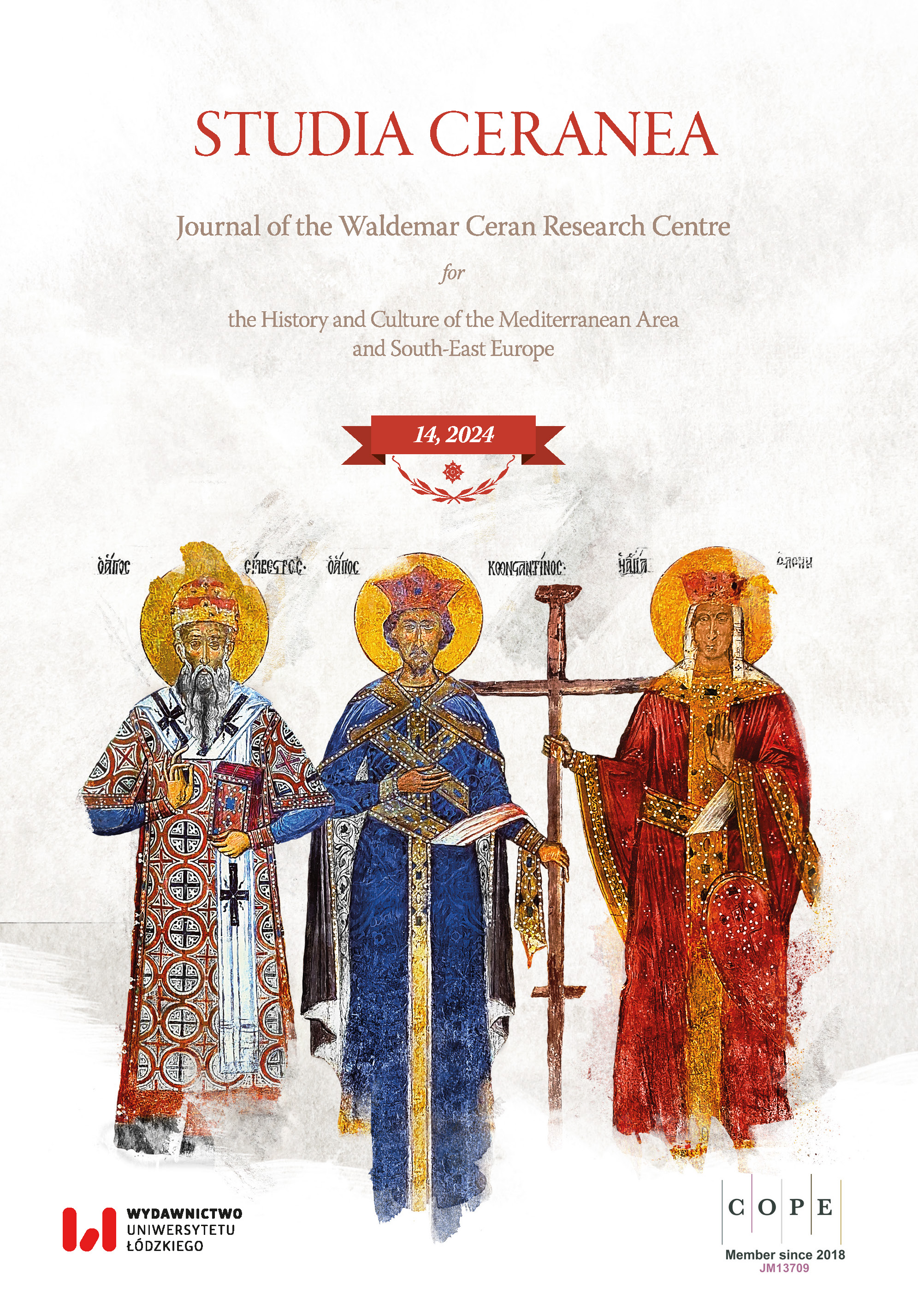A Sixth-century Story in a Nineth-century Tract? Torna, torna, frater Revisited
A Sixth-century Story in a Nineth-century Tract? Torna, torna, frater Revisited
Author(s): Elisabeta NegrăuSubject(s): History, Ancient World, Historical Linguistics
Published by: Wydawnictwo Uniwersytetu Łódzkiego
Keywords: Theophylact Simocatta’s Universal History; Theophanes Confessor’s Chronicle; torna; torna; frater; Late Latin; genesis of Romance languages
Summary/Abstract: This article focuses on the Latin words torna and frater. According to the accountsof Theophylact Simocatta and Theophanes the Confessor, the words were used by soldiers participating in the Byzantine-Avar war campaign in the Haemus mountains in 587. Relying mainlyon the passage from the chronicle of Theophanes, Romanian scholars have interpreted the words asan early form of a Balkan Romance idiom spoken by the local population. The two words would notbe strong enough evidence to support the view that this is a sample of early Balkan Romance language in the sixth-century Thrace. The analysis of the words, as well as of the context in which theywere used, links the phrase “torna, torna, frater” to Vulgar Latin and sermo castrensis. The authoralso argues that the chroniclers dramatized the accounts of the episode where the words were used.Additionally, the form fratre, which is found in two manuscript copies from the eleventh and twelfthcenturies, seems to be an interpolation from a medieval Western Romance language, likely earlyItalian, and should not be identified with any language used in the Balkans. “Torna torna fratre”should be viewed as indicating a grasp of Italianate Latin within the Middle Byzantine context. Thisview contradicts the earlier assertions on the subject.
- Issue Year: 2024
- Issue No: 14
- Page Range: 537-561
- Page Count: 25
- Language: English

